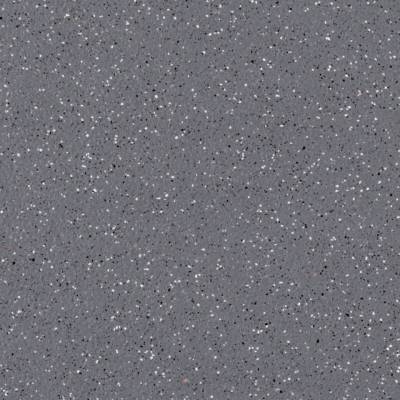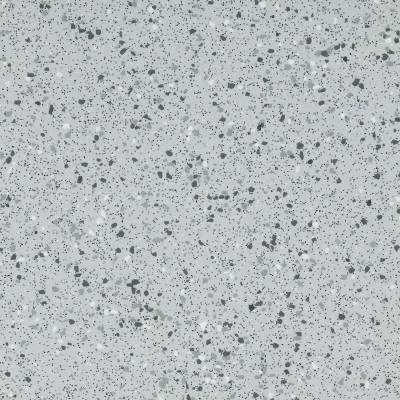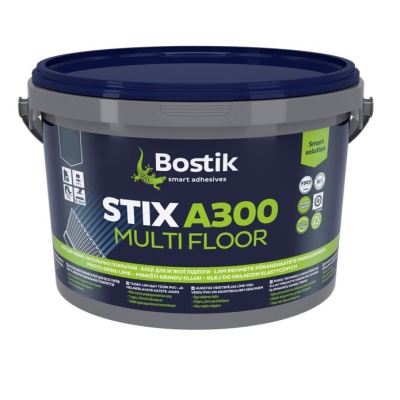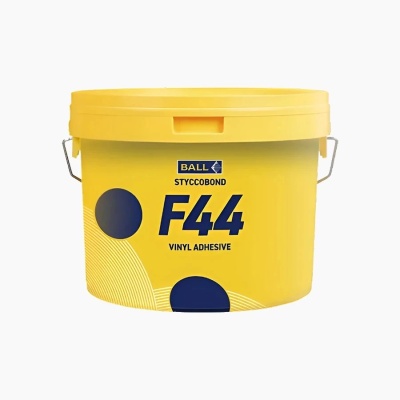A Guide To Commercial Vinyl Flooring
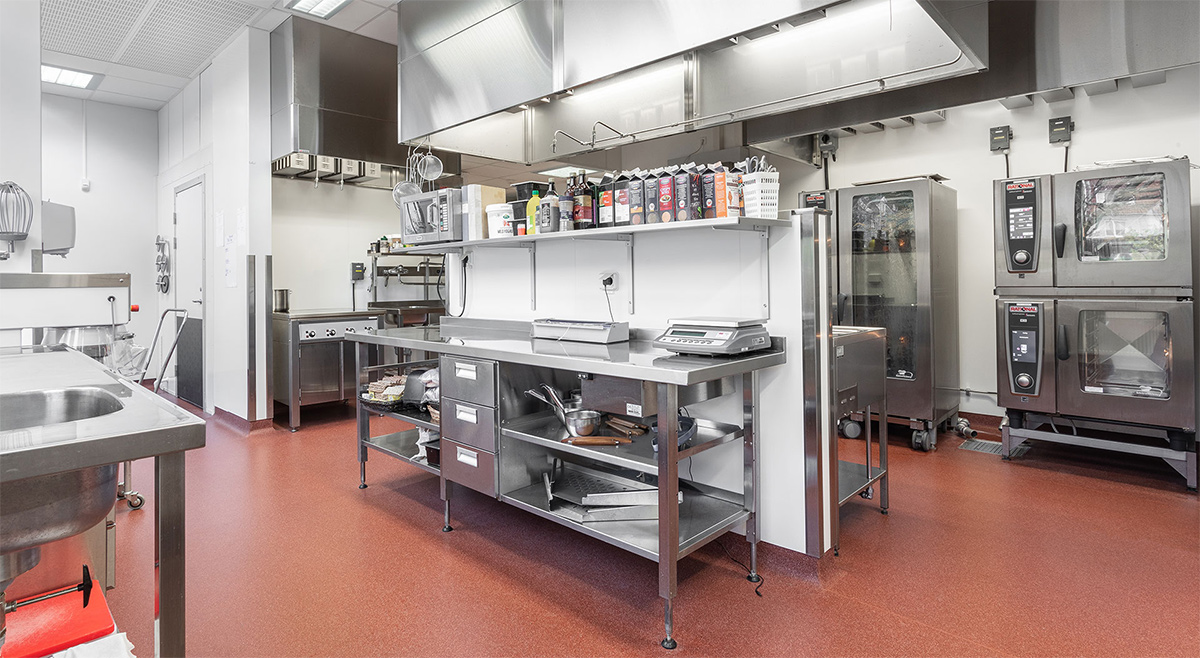
By Trevor Ballard
Published 12/11/24
Customers often contact us to ask the question what actually is commercial flooring? With this in mind, we thought it would be beneficial to talk about the different types of commercial flooring available (often called contract, industrial or safety flooring), what makes them different from domestic vinyl flooring and how and when you would use them. As you will see, there are a lot of options available and without the right guidance, you could easily end up with the wrong flooring in the wrong place, which can become very expensive.
What is the difference between domestic and commercial vinyl?
One of the main differences is that a domestic vinyl is made up of different layers that are effectively stuck together, whereas commercial vinyl is often (but not always) formed using a single thickness of material.
Domestic Vinyl
With multi-layer construction, domestic vinyl can have a thicker base layer to create a cushioned floor effect, the wear layer provides durability, and the printed pattern layer can be varied to offer an unlimited range of patterns. The very top layer of a domestic vinyl, known as the wear layer, can also be thickened and enhanced to provide added durability and to help achieve an 'R rating' for slip resistance. Domestic vinyl ranges vary between 2mm and 5.5mm in thickness, most offer a slip resistance rating of either R9, R10 or R11 when used in the home. One thing to bear in mind is that thicker is not always better, it’s the wear layer that does all the hard work and it’s the part of the vinyl that you ultimately walk on, our domestic vinyl ranges vary between a budget 0.15mm thick wear layer up to the most durable wear layer which is 0.70mm thick.
Commercial Vinyl
These types of vinyl are generally made with fewer layers or even a single thickness known as homogenous vinyl, these are incredibly durable, flexible and offer superior stain and slip resistance. Examples of homogeneous vinyl that we sell include Altro Walkway, Polyflor Standard, Tarkett Safetred and Forbo’s Surestep safety vinyl, which range from 2mm to 4mm in thickness.
One of the main advantages of these types of flooring is their durability and the fact that they meet the HSE requirements for safety and slip resistance in commercial kitchens, bars, serving spaces and customer public toilet areas.
When it comes to commercial vinyl flooring, most will be familiar with the big brand names like Altro, Polyflor, Forbo and Tarkett as they have been around a long time and have a reputation for their quality and durability. Generally speaking, a commercial vinyl from any one of these manufacturers will help provide a safe, slip-resistant floor for your staff and customers.
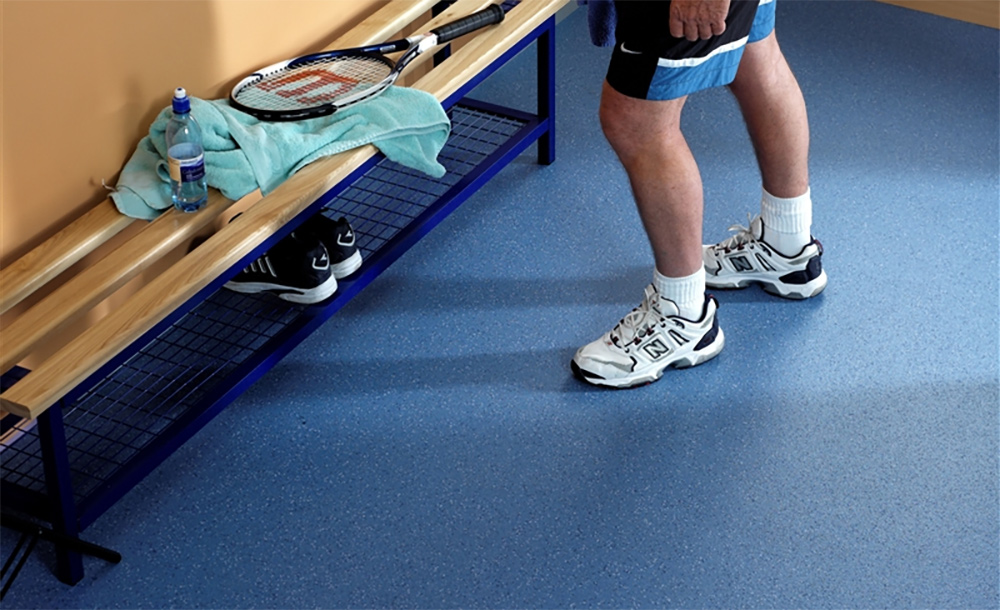
A guide to slip resistance
One of the most important factors for commercial flooring used in public areas or in the workplace is slip resistance. For this reason, the flooring is thoroughly tested and is given an "R rating" of between R9, the lowest level and R13 the highest. But which R rating do you need?
R9 - Typically used in dry indoor areas such as living rooms, dining areas and bedrooms where there is little or no risk of water being on the floor to add to the chances of slipping.
R10 - Ideal for areas prone to splashes and spills like a kitchen, hallway or cloakroom, an R10 slip resistance rating provides 'minor to moderate' resistance to slipping. In most instances, an R10-rated floor will be HSE compliant although specific local conditions will need to be assessed to ensure compliance. Many of our domestic vinyl ranges also have an R10 rating.
R11 - This rating provides an enhanced level of slip resistance in areas that are constantly prone to water like bathrooms, wet rooms, restaurant kitchens or behind bar areas. An R11 rating offers protection from slipping in commercial kitchens where spills are frequent or where there are external entrances. R11 rated floors in commercial environments are generally fully HSE compliant.
R12 & R13 - These two ratings offer the very highest levels of slip resistance and are most commonly found in areas requiring extreme slip resistance, for example around swimming pools or in public showers or changing areas. These higher ratings are considered to be well in excess of the HSE requirements for commercial kitchens, bar areas where an R10 or R11 rating is sufficient.
How hard wearing?
Now we know a little about slip resistance it is also worth bearing in mind that commercial vinyl is highly resistant to scratches, dents and scuffs, so much so that many manufacturers like Tarkett provide an impressive 10 to 20 year warranty for their vinyl. Homogeneous vinyl is waterproof, it can be turned up the walls (known as cap and cove) to provide a waterproof join between the floors and the walls and it can be heat welded to form a single continuous floor. This type of professional installation requires a trained professional with specialist tools and knowledge, it’s not something that is recommended to do DIY.
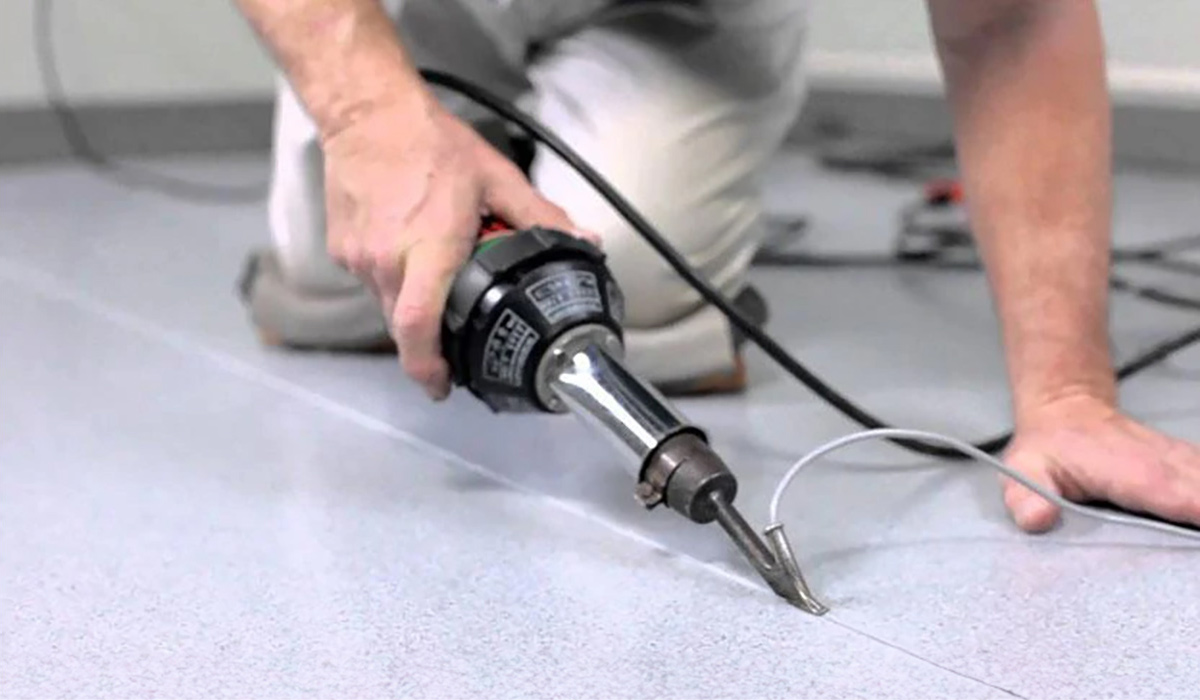
I need a commercially rated vinyl but want a nice pattern
Several manufacturers like Polyflor and Forbo offer a range of patterned commercially rated vinyls. They achieve this by making them thinner (with less of a spongy cushioned layer) and therefore less likely to puncture or tear, they have a built-in patterned layer and an enhanced wear layer of 0.70mm, an R10 slip resistance rating making them suitable for commercial use and they achieve HSE compliance. Good examples of these are the Eternal wood range from Forbo or the Secura range from Polyflor, both suitable for domestic or commercial use.
What about the cost? Are commercial vinyl floors much more expensive?
The short answer is no, not always. We have a huge range of domestic vinyl’s that range from just £6.95 per m² for our budget ranges up to £20+ per m² for our more luxurious designer ranges. Most of these are available in 2m wide but some do come 3m or 4m wide, so you can order the size that best fits your room and save some money!
When looking at the commercial ranges like Altro Walkway or our Tarkett Safetred we have some bargain rolls in our clearance section from just £14.95 per m², that’s a huge saving when compared to the RRP. Do bear in mind that a lot of the Altro, Tarkett, Polyflor and Forbo commercial vinyl ranges are only made in a 2m wide roll as they would simply be far too heavy to handle in a 3m or 4m wide roll.
What about the cost of those wider patterned commercial vinyl ranges?
There are some really good options available here, check out our Polyflor Secura or Designatex ranges (from £20.95 per m²) or our Ultragrip Xtreme Vinyl (from just £16.95 per m²), they are all available in 2m, 3m or 4m wide rolls, are commercially rated and have an R10 slip resistance rating so you can get that floor covered without breaking the bank.
Do I need special adhesives for my commercial vinyl flooring?
Yes you do, it is always best to fully stick down your vinyl using an approved adhesive such as our A300 vinyl adhesive by Bostik , a handy sized 6kg tub covers up to 24 m² is perfect for the job. This adhesive is the recommended professional's choice. We also sell the F Ball & Co. F44 vinyl adhesive in either a 1 ltr, 5ltr or the larger 15ltr tubs, the coverage on this adhesive is approximately 4 m² per litre.
Our trained experts are on hand to answer any of your questions and give advice on your next commercial flooring project, call us on 0800 246 1099 or email us at help@remland.co.uk.
